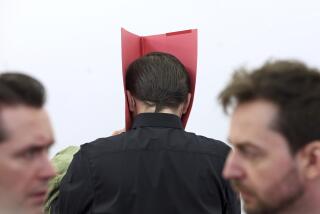A sort of centrist weighs in on Chavez victory
Teodoro Petkoff is a former leftist revolutionary and Cabinet minister. He is now editor of Tal Cual, a scrappy Caracas-based alternative newspaper. In highly polarized Venezuela, he is perhaps the closest thing to a centrist commentator.
On Monday, he discussed President Hugo Chavez’s victory in the weekend referendum that will allow Chavez to run for reelection indefinitely, and what policy changes he expects.
Chavez seems to connect with his constituents while the Venezuelan opposition does not.
Little by little, the universe of opposition is growing. The difference between the votes that Chavez and the opposition got is narrowing with each electoral process. This time Chavez won with 54% to 46%, whereas he was reelected in December 2006 with 64% of the votes. The opposition in this election passed the 5-million-vote barrier, which seems significant. And I don’t have the slightest doubt that the deterioration of Chavez’s support will continue through the next presidential election in 2012.
Should the opposition adopt Chavez’s social welfare policies such as “missions” [to provide healthcare, fight illiteracy and other projects] since they seem to mean a lot to poor voters?
The opposition has never rejected the missions. Venezuela has had social programs throughout its history. Chavez didn’t invent them. In fact in the last presidential election, opposition candidate Manuel Rosales made a campaign offer to give all Venezuelans a credit card entitling them to social services similar to those of the missions.
Is it true that the short-lived coup d’etat in April of 2002 opened up a breach of confidence between the poor and the more affluent that the opposition still hasn’t been able to bridge?
It’s true that the opposition hasn’t finished building that bridge. But it’s advancing. Little by little people are becoming disenchanted with the government, and because of that the opposition is growing.
In your column today, you criticize Chavez for using public resources to get out the vote. Isn’t it a common tactic in Latin America?
I don’t think anywhere in Latin America has ever reached the levels we’ve just seen in Venezuela, the blackmailing of public employees to vote yes or they will lose their jobs; the threats against the poor that they will lose welfare benefits if Chavez isn’t given indefinite reelection; the use of official vehicles and how public employees participated in campaign events.
But the worst was the brutal tolerance of all this by the National Electoral Commission, four of whose five members are Chavez activists. I’m not saying Chavez didn’t win. The electronic voting system is tamper-proof. But the cynicism of the electoral commission was total.
Where will Chavez take the country now?
Very soon Chavez will have to concern himself with the economic crisis. Also he might try to tighten his grip on institutions. He might try to bypass state governors by appointing regional chiefs whose power supersedes those of the elected officials.
On the economic front he has less room to maneuver. He has to deal with the collapse of oil prices, which will affect his public policies and his ability to lubricate his popularity.
Chavez is sending signals that he wants better relations with the United States. Is he sincere?
Chavez would love to have another Bush in the White House. He was a gift from God for someone like Chavez. But with Obama, Chavez will have to act with prudence and intelligence.
He knows he can’t treat Obama the same way as Bush. He knows Obama is intelligent and flexible and will manage the empire with less stupidity than Bush did.
How much has the Latin American playing field changed with Obama’s election?
There are a lot of expectations with Obama. Opening up trade with Cuba, allowing tourism and cash transfers, easing the embargo -- all would be innocuous gestures for him.
Cuba is in economic, social and moral ruin. But in spite of all that, Cuba is part of Latin America and we feel U.S. policy as a wound of our own bodies. So if Obama did something to address that wound, it would be something very positive for U.S.-Latin American relations.
--
More to Read
Start your day right
Sign up for Essential California for news, features and recommendations from the L.A. Times and beyond in your inbox six days a week.
You may occasionally receive promotional content from the Los Angeles Times.






